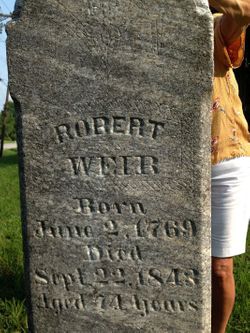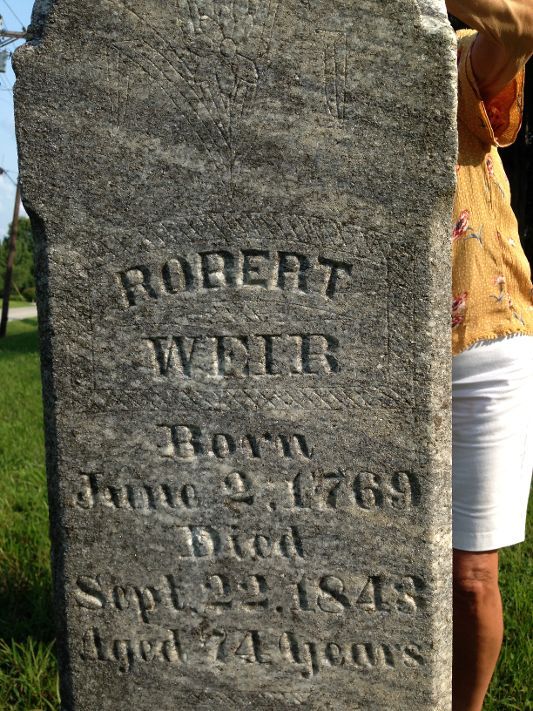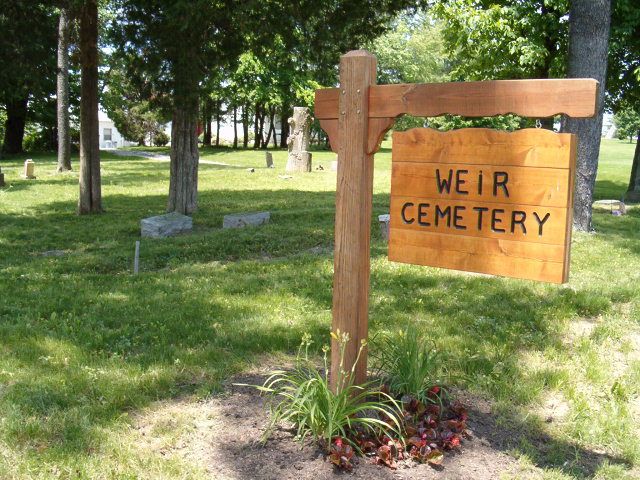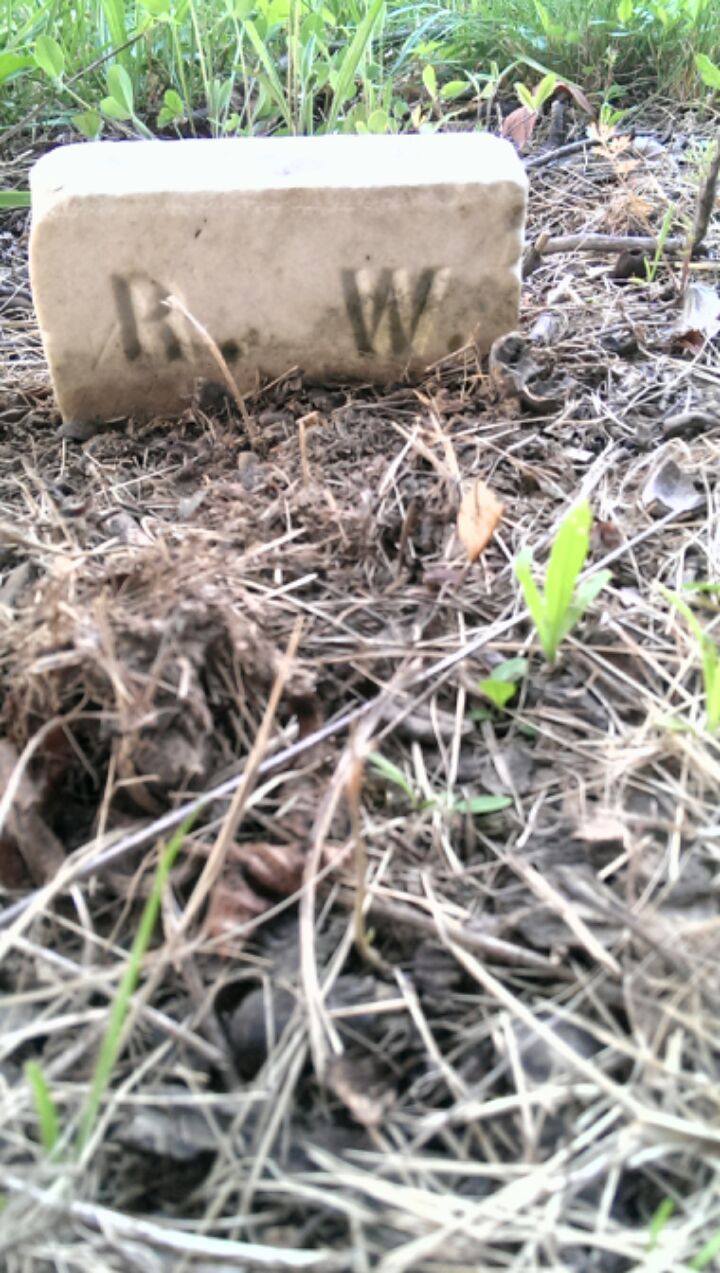From Rockbridge County, Virginia, An Informal History, by Edmund Pendleton Tompkins, M.D., Whittet & Shepperson, Richmond, Va., c.1952:
"As of March 1, 1778 the new county of Rockbridge came into existence. Two-thirds was taken from Botetourt Co. and the rest from Augusta. The new county seat was to be called Lexington. The Virginia Valley population in 1776 it was 48,000 whites and 5,000 blacks, and in 1790 it was 71,000 whites with 12,000 blacks.
For the early settlers of Rockbridge County, marketing their agricultural products, some cattle but mainly grain, was a problem. The coastal area was blocked by mountains and no urban areas were close; therefore, north to Philadelphia was the answer. Since most of Scotland is mountainous, the Scotch-Irish emigrants sought out similar country; and the mountain streams, which were swift, furnished waterpower for mills to grind the grain.
This then was the life in colonial Rockbridge - challenging, demanding, unbending. This was the cutting edge of the frontier and Indians conducted raids into the 1760s. This was a struggle for survival, and the weak fell by the wayside. But those that endured, and who built their early mills, schools and churches, left a rich history and heritage.
Not until eastern Virginia was well settled did the sturdy Scotch-Irish covenanters win over this land. Driven from Scotland to Northern Ireland, then to the New World, they were equal to the ardors that confronted them. They were willing, to use one of their own expressions, 'to fight the devil and give him an underhold.'"
Robert married to Sarah, daughter of Andrew McCampbell and Ann Gilmore, on May 9, 1792 in Rockbridge County. Robert's marriage to Sarah was the third Weir and McCampbell marriage. In 1789, Sarah's brother, John McCampbell, had married Robert's sister, Susannah. And in 1791, Robert Weir's sister, Eleanor, had married Sarah's brother, Robert.
By 1801, Robert had moved his young family to Scott County, Kentucky. By a power of attorney from there, Robert participated in the sale of his father's plantation back in Virginia. From 1802 to1807 Robert and his brother, James, Jr., were taxpayers in Shelby County, Kentucky. Sarah had nine known children by 1814 - five boys and four girls.
From Weir/Wear Families:
"In 1807, they jointly bought 200 acres on the headwaters of Long Run. They paid $800 for it and for unknown reasons sold it to a neighbor in 1811 for 15 shillings. (Editor: They evidently lost their property due to bad title.) Robert appears next in the records of Knox County, In. As it later turns out, Clark Co. and many others were subsequently formed out of Knox."
Robert Weir's family arrived in Union Township about one mile south of Memphis, Clark County in March 1810. Sarah's cousin, James McCampbell, was one of the founders of Charlestown, Indiana.
Their grand-daughter tells the story some 100 years later. From a Galaxy of Octogenarians - a Sketch of some of the Noble Men and Women of Miami Township by our Regular Correspondent, by Flora Bell, published in Marshall, Saline County, Missouri, August 7, 1909, interview of Elvira Weir Scott (born 1821, Clark County, Indiana, daughter of James Weir and Jane Dinwiddie, grand-daughter of Robert Weir and Sarah McCambell, Thomas Dinwiddie and Mary Davidson):
"At that time the Territory of Indiana was inhabited by tribes of hostile Indians. For safety, her grandfather lived in Read's Fort; here, her grandmother, with her knitting, often kept watch for Indians, while the men, with arms in reach, cultivated their crops. It was near this fort that Elvira Weir was born. She delights to recall the stories she heard from her grandmother's life - of murder, hardship and wonderful escapes, which thrilled her young life. Surrounded by danger, privation and hardships, her grandfather's large family grew up. Her father, James Weir and his brother married sisters, daughters of Thomas Dinwiddee." (Editor: James' half brother, Andrew, married Nancy Dinwiddie.)
Again from Weir/Wear Families:
"On 10 Sept. 1814 Robert bought 120 acres of land in 'Illinois Grant #186 in Clark County, Indiana. In 1820, Robert and Sarah deeded 20 acres of their land to Andrew (ed: their son). In 1830, the same 20 acres was deeded to another James Weir. (ed.: surely their son James, born ca.1796). The children of Robert and Sarah are not necessarily all known and proven.
Sarah lived the full life of a pioneer farmer's wife and died at nearly age 70, on 21 September 1843. Within only a few hours, on 22 September, Robert followed.
They are buried in the Weir family graveyard that is along the west line of the 120 acre tract bought in 1814 (editor: near Memphis, Clark County, Indiana). The inscription on their headstone can still be read:
'Robert Weir and Sarah McCampbell were married May 9, 1792, they lived together a happy life for over 50 years, and died within a few hours of each other, and now rest here awaiting the resurrection.'
Sarah's birth and death (dates) are on the face of the stone opposite Robert. On the 4th face of the stone is a reference to Rockbridge County, Virginia. Their monument is a four-sided obelisk. One side reads 'Happy souls thy days are ended. All thy mourning days below. Go by angel guards attended. To the sight of Jesus go.' The back of the monument reads: 'In memory of Grand Father and Mother - Merrill A. Weir.'"
Contributor: Dennis Nicks (48332432) • [email protected]
From Rockbridge County, Virginia, An Informal History, by Edmund Pendleton Tompkins, M.D., Whittet & Shepperson, Richmond, Va., c.1952:
"As of March 1, 1778 the new county of Rockbridge came into existence. Two-thirds was taken from Botetourt Co. and the rest from Augusta. The new county seat was to be called Lexington. The Virginia Valley population in 1776 it was 48,000 whites and 5,000 blacks, and in 1790 it was 71,000 whites with 12,000 blacks.
For the early settlers of Rockbridge County, marketing their agricultural products, some cattle but mainly grain, was a problem. The coastal area was blocked by mountains and no urban areas were close; therefore, north to Philadelphia was the answer. Since most of Scotland is mountainous, the Scotch-Irish emigrants sought out similar country; and the mountain streams, which were swift, furnished waterpower for mills to grind the grain.
This then was the life in colonial Rockbridge - challenging, demanding, unbending. This was the cutting edge of the frontier and Indians conducted raids into the 1760s. This was a struggle for survival, and the weak fell by the wayside. But those that endured, and who built their early mills, schools and churches, left a rich history and heritage.
Not until eastern Virginia was well settled did the sturdy Scotch-Irish covenanters win over this land. Driven from Scotland to Northern Ireland, then to the New World, they were equal to the ardors that confronted them. They were willing, to use one of their own expressions, 'to fight the devil and give him an underhold.'"
Robert married to Sarah, daughter of Andrew McCampbell and Ann Gilmore, on May 9, 1792 in Rockbridge County. Robert's marriage to Sarah was the third Weir and McCampbell marriage. In 1789, Sarah's brother, John McCampbell, had married Robert's sister, Susannah. And in 1791, Robert Weir's sister, Eleanor, had married Sarah's brother, Robert.
By 1801, Robert had moved his young family to Scott County, Kentucky. By a power of attorney from there, Robert participated in the sale of his father's plantation back in Virginia. From 1802 to1807 Robert and his brother, James, Jr., were taxpayers in Shelby County, Kentucky. Sarah had nine known children by 1814 - five boys and four girls.
From Weir/Wear Families:
"In 1807, they jointly bought 200 acres on the headwaters of Long Run. They paid $800 for it and for unknown reasons sold it to a neighbor in 1811 for 15 shillings. (Editor: They evidently lost their property due to bad title.) Robert appears next in the records of Knox County, In. As it later turns out, Clark Co. and many others were subsequently formed out of Knox."
Robert Weir's family arrived in Union Township about one mile south of Memphis, Clark County in March 1810. Sarah's cousin, James McCampbell, was one of the founders of Charlestown, Indiana.
Their grand-daughter tells the story some 100 years later. From a Galaxy of Octogenarians - a Sketch of some of the Noble Men and Women of Miami Township by our Regular Correspondent, by Flora Bell, published in Marshall, Saline County, Missouri, August 7, 1909, interview of Elvira Weir Scott (born 1821, Clark County, Indiana, daughter of James Weir and Jane Dinwiddie, grand-daughter of Robert Weir and Sarah McCambell, Thomas Dinwiddie and Mary Davidson):
"At that time the Territory of Indiana was inhabited by tribes of hostile Indians. For safety, her grandfather lived in Read's Fort; here, her grandmother, with her knitting, often kept watch for Indians, while the men, with arms in reach, cultivated their crops. It was near this fort that Elvira Weir was born. She delights to recall the stories she heard from her grandmother's life - of murder, hardship and wonderful escapes, which thrilled her young life. Surrounded by danger, privation and hardships, her grandfather's large family grew up. Her father, James Weir and his brother married sisters, daughters of Thomas Dinwiddee." (Editor: James' half brother, Andrew, married Nancy Dinwiddie.)
Again from Weir/Wear Families:
"On 10 Sept. 1814 Robert bought 120 acres of land in 'Illinois Grant #186 in Clark County, Indiana. In 1820, Robert and Sarah deeded 20 acres of their land to Andrew (ed: their son). In 1830, the same 20 acres was deeded to another James Weir. (ed.: surely their son James, born ca.1796). The children of Robert and Sarah are not necessarily all known and proven.
Sarah lived the full life of a pioneer farmer's wife and died at nearly age 70, on 21 September 1843. Within only a few hours, on 22 September, Robert followed.
They are buried in the Weir family graveyard that is along the west line of the 120 acre tract bought in 1814 (editor: near Memphis, Clark County, Indiana). The inscription on their headstone can still be read:
'Robert Weir and Sarah McCampbell were married May 9, 1792, they lived together a happy life for over 50 years, and died within a few hours of each other, and now rest here awaiting the resurrection.'
Sarah's birth and death (dates) are on the face of the stone opposite Robert. On the 4th face of the stone is a reference to Rockbridge County, Virginia. Their monument is a four-sided obelisk. One side reads 'Happy souls thy days are ended. All thy mourning days below. Go by angel guards attended. To the sight of Jesus go.' The back of the monument reads: 'In memory of Grand Father and Mother - Merrill A. Weir.'"
Contributor: Dennis Nicks (48332432) • [email protected]
Inscription
Husband of Sarah....Age 74
"They lived together a happy life for over 50 years and died within a few hours of each other and now rest here waiting the Resurrection"
Family Members
Advertisement
Explore more
Sponsored by Ancestry
Advertisement












